Health and Nutrition
 Despite remarkable progress in various aspects, maternal and child health as well as nutrition, in Odisha demand focused attention.According to the Census of India projection report, Odisha is home to 12 million women in the reproductive age group (15-49 years) and 4 million children under the age of 5 in 2021. The state’s average number of children per woman has decreased from 2 in 2015-16 to 1.8 in 2019-21, falling below the replacement level of fertility. In other words, the child population in Odisha has begun to decline.
Despite remarkable progress in various aspects, maternal and child health as well as nutrition, in Odisha demand focused attention.According to the Census of India projection report, Odisha is home to 12 million women in the reproductive age group (15-49 years) and 4 million children under the age of 5 in 2021. The state’s average number of children per woman has decreased from 2 in 2015-16 to 1.8 in 2019-21, falling below the replacement level of fertility. In other words, the child population in Odisha has begun to decline.
While Odisha has exhibited improvements in maternal and child health over the past few decades, the progress has been slow and uneven. The average maternal mortality ratio (MMR) has decreased from 222 (per 100000 live births) in 2011-13 to 119 in 2018-19. However, this figure remains above the national average of 97. In certain tribal districts such as Sambalpur, Nuapada, Kandhamal, Malkangiri, and Koraput, MMR still exceeds 200.
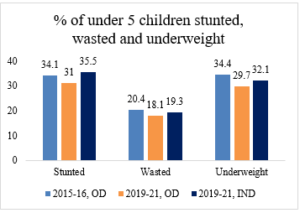 Similarly, positive strides in child health indicators are evident. According to the National Family Health Survey-5 report (NFHS-5), 31.0% of children below five years in Odisha are stunted, 18.1% children are wasted, and 29.7% are underweight. Although there has been an improvement in the prevalence of these indicators compared to previous levels, districts like Bolangir, Boudh, Keonjhar, Koraput, Malkangiri, Nabarangpur, Mayurbhanj, Rayagada, Sambalpur and Subarnapur – often referred to as the hotspot districts of Odisha – require immediate attention in terms of anemia and nutritional aspects.
Similarly, positive strides in child health indicators are evident. According to the National Family Health Survey-5 report (NFHS-5), 31.0% of children below five years in Odisha are stunted, 18.1% children are wasted, and 29.7% are underweight. Although there has been an improvement in the prevalence of these indicators compared to previous levels, districts like Bolangir, Boudh, Keonjhar, Koraput, Malkangiri, Nabarangpur, Mayurbhanj, Rayagada, Sambalpur and Subarnapur – often referred to as the hotspot districts of Odisha – require immediate attention in terms of anemia and nutritional aspects.
In Odisha, 64.4% women in reproductive age-group are anemic, with the figure rising to 61.8% for pregnant women. According to the NFHS 5 report (2019-21), nearly two-third of women in their reproductive age (15-49 years) are anemic, and in tribal areas, this percentage is even higher at 71.7%. The primary cause of anemia in Odisha is attributed to iron deficiency resulting from inadequate dietary iron intake, poor iron absorption, and iron loss during intestinal worm infection, pregnancy, and menstruation (Yilma etal.,2020).
Sealander et.al (2020) observes that the front-line healthcare professionals in Odisha lack a thorough understanding of anemia and IFA, which is a major challenge in meeting the targets of reducing anemia in the state. According to the National Nutrition Monitoring Bureau (NNMB) report 2019, only about half of pregnant women consume adequate quantities of protein and energy. Furthermore, gender discrimination in food intake persists, sometimes justified by tradition, culture, and religion.
The repercussions of malnutrition encompass diminished cognitive functions, physical exhaustion, muscle wasting, and delayed wound healing. Prolonging a child’s compromised health can lead to decreased school performance, reduced concentration, hindered academic and physical growth, weakened immunity, ultimately culminating in unhealthy impacts on the broader family, community, and environment. Concurrently, insufficient measures addressing climate change, pollution, and unforeseen disasters expose women and children in Odisha to heightened risks and precarious living conditions.
Demographic Transition and Development for Transformative Odisha@2036:
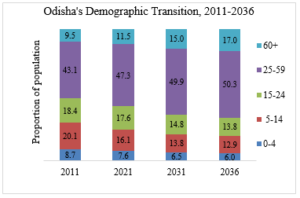 Odisha is currently undergoing the third phase of demographic transition, characterized by significant declines in both birth rate and death rates. According to the technical group projection report of Census of India (2020), the child population of Odisha is estimated to decrease from 9% in 2011 to 6% in 2036. The average number of children per women has also seen a reduction from 2.1 in 2015-16 to 1.8 in 2019-21. Likewise, the proportion of women in the reproductive age-group is anticipated to decrease from 55% in 2021 to 51% in 2036.
Odisha is currently undergoing the third phase of demographic transition, characterized by significant declines in both birth rate and death rates. According to the technical group projection report of Census of India (2020), the child population of Odisha is estimated to decrease from 9% in 2011 to 6% in 2036. The average number of children per women has also seen a reduction from 2.1 in 2015-16 to 1.8 in 2019-21. Likewise, the proportion of women in the reproductive age-group is anticipated to decrease from 55% in 2021 to 51% in 2036.
In this evolving demographic landscape, understanding the context of maternal and child health and nutrition becomes crucial. With a decreasing number of women in the early reproductive age group and a preference for fewer children, there is likely to be a decline in reported pregnancies in the coming years. This shift may contribute to an improvement in the quality of healthcare for both mothers and children. The Infant Mortality Rate (IMR) of the state, reported as 34 in 2019-21, is expected to decrease to 20 by the end of the period 2031-35. It is important to note that while the focus here is on women aged 15-59, individuals outside this age group also require access to good health, as they play active roles in both the care and household economies.
To meet the SDG targets on maternal and child health and nutrition, a crucial policy shift is imperative. There is an urgent need to develop and scale up radically improved solutions that directly tackle the underlying fundamental factors driving malnutrition and ill-health.
Odisha Budget, Policy, and Programmes:
Odisha has implemented a range of projects and programmes aimed at achieving sustainable development goals and addressing malnutrition and anemia. Initiatives such as the Supplementary Nutrition Programme, Iron and Folic Acid supplementation, and Vitamin A supplementation program target deficiencies in macro and micro-nutrients. Centrally Sponsored Schemes (CSS) including the Integrated Child Development Scheme (ICDS), POSHAN Abhiyan, Pradhan Mantri MatruVandana Yojana (PMMVY) and the National Health Mission (NHM), Janani Suraksha Yojana (JSY), work towards enhancing the health of mothers and children.
Additionally, specific measures like the Nutrition Rehabilitation Centre (NRC), Pradhan Mantri Poshan Abhiyan (PMPA), Rastriya Poshan Maah (NNM), as outlined in the Nutritional Budget 2022-23, address nutritional needs of the state. At the state level, various initiatives include the Mukhyamatri Sampurna Pusti Yojana, Community-based Management of Sever Acute Malnutrition (CSAM), AMLA (Anaemia Mukta Lakshya Abhiyan), Sammpurna (Sishu Abang Matru Mrutyu Ra Purna Nirakarana Abhiyan)-2021, Public Distribution System (PDS), Special Nutrition Programme (SNP) along with Ojan Ustchav/Growth Monitoring Drive. These efforts collectively reflect the state’s commitment to improving the nutritional well-being of its population.
Investment in the health and nutrition of children, adolescent girls, and women takes precedence as they represent the most vulnerable segments of any society. Children from disadvantaged households, deprived of access to nutritious foods, face the risk of compromised human capital development. Effectively tackling pervasive issues like stunting, wasting, and malnutrition necessitates coordinated efforts across various departments within the state machinery. Furthermore, the Health and Nutrition Budget plays a pivotal role as a tool for pinpointing crucial funding and resource gaps in the state’s nutrition strategy, aiding in informed decision-making and targeted interventions.
Way Forward:
The Odisha Vikash Conclave is envisioned as a pivotal event that could help set the agenda for the formulation of an action plan with specific deliverables and policy recommendation to address key challenges. The resulting programmatic action plan and policy recommendations will serve as guiding frameworks for the effective implementation of strategies and initiatives, fostering the development and transformation of Odisha by 2036.
Discussion Points:
- What are the current issues and challenges in th realm of health and nutrition in Odisha?
- What are the determinants of under-nutrition among the mothers and children? What factors contribute to the said phenomenon?
- What obstacles exist, and what strategies can be employed to address the healthcare needs of the underprivileged population in Odisha?
- What are the roles and responsibilities of CSOs, CSR agencies, academicians and government bodies in promoting quality health and reducing malnutrition in Odisha?
Speakers / Panelists
Dr. Shridhar Murlidhar Kadam,Director-IIPH-PHFI, Odisha
Dr. Kadam has 22 years of experience in public health. He has worked with the World Health Organization for six years in the states of Orissa and Bihar and with the government of Maharashtra for two years. At present, he is working with PHFI as a faculty since 2008, initially at the Indian Institute of Public Health, Hyderabad and presently at the Indian Institute of Public Health, Bhubaneswar. He has involved in teaching, research and advocacy specifically in the areas of health systems, human resource management and health policy. he has also contributed to developing and delivering various short term and long-term capacity building programmes especially for the public health workforce working in the government system. Dr. Kadam has 22 years of public health experience of policy and management relevant research in the domains of human resources, health systems, health financing and insurance and programme management with funding from Welcome Trust, DFID, Tata Trust, Access International, Government of Odisha and Government of Andhra Pradesh. Now he is focusing research interests in the areas of human resources management and health systems.
Smt. Shubha Sarma, IAS, Commissioner-cum-Secretary, Dept of Women & Child Development, Govt of odisha
Dr. Niranjan Mishra, Director of Public Health, Dept. Health and Family Welfare, Odisha
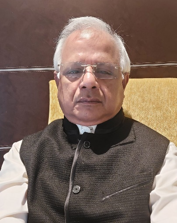 Dr. Niranjan Mishra. MS (General Surgery) currently serving as Director of Public Health, Odisha. He completed his schooling pre-graduation (ISc) from Ravenshaw College, Cuttack. Completed MBBS from SCB Medical College, Cuttack in 1982. And later completed MS in General Surgery from the same institute. Had worked for long as Surgery Specialist at DHH Koraput and later at Capital Hospital Bhubaneswar. Also performed as Superintendent Capital Hospital, Bhubaneswar. Became CDMO DHENKANAL before being promoted as Director of Public Health.
Dr. Niranjan Mishra. MS (General Surgery) currently serving as Director of Public Health, Odisha. He completed his schooling pre-graduation (ISc) from Ravenshaw College, Cuttack. Completed MBBS from SCB Medical College, Cuttack in 1982. And later completed MS in General Surgery from the same institute. Had worked for long as Surgery Specialist at DHH Koraput and later at Capital Hospital Bhubaneswar. Also performed as Superintendent Capital Hospital, Bhubaneswar. Became CDMO DHENKANAL before being promoted as Director of Public Health.
A member of ASI, IMA and Fellow of minimally invasive surgeons Association (FMAS) Served 25 years in Koraput District. He was state trainer for No scalpel vasectomy for which awarded several times at state level. Multiple activity trained in ultrasound and endoscopy and endoscopic surgery. Held Administrative position as Supd Capital Hospital , CDM&PHO Dhenkana lDPH (Odisha). He was Actively involved in Covid surveillance & Management. Managed a large number of Disease control programmers with award wining achievements.
Prof. (Dr) Akhil Bihari Ota, IAS (Retd), Former Director & Special Secretary, SCSTRTI, (TRI Odisha)
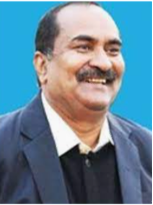 Prof. (Dr) A. B. Ota is an Anthropologist of international repute. He was a former Professor of Anthropology and thereafter got inducted into Indian Administrative Service. He has served as IAS Officer by headeding for 15 years the Scheduled Cas tes and Scheduled Tribes Research and Training Institute (SCSTRTI). Professor Ota is regarded as one of the most sought for Tribal Experts in the Country. He was also the Honorary Advisor, National Tribal Research Institute (NTTRI) under the Ministry of Tribal Affairs, Government of India. Professor Ota has also acted as an Expert Committee Member on PVTGs invited by NITI Aayog. Currently, he is the Professor Emeritus, KISS Deemed to be University in Anthropology and also Senior Advisor, UNICEF Odisha. Professor Ota is also a Member, National Oversight Committee & Content Committee for 10 Tribal Freedom Fighters Museums being set up by Ministry of Tribal Affairs, Government of India
Prof. (Dr) A. B. Ota is an Anthropologist of international repute. He was a former Professor of Anthropology and thereafter got inducted into Indian Administrative Service. He has served as IAS Officer by headeding for 15 years the Scheduled Cas tes and Scheduled Tribes Research and Training Institute (SCSTRTI). Professor Ota is regarded as one of the most sought for Tribal Experts in the Country. He was also the Honorary Advisor, National Tribal Research Institute (NTTRI) under the Ministry of Tribal Affairs, Government of India. Professor Ota has also acted as an Expert Committee Member on PVTGs invited by NITI Aayog. Currently, he is the Professor Emeritus, KISS Deemed to be University in Anthropology and also Senior Advisor, UNICEF Odisha. Professor Ota is also a Member, National Oversight Committee & Content Committee for 10 Tribal Freedom Fighters Museums being set up by Ministry of Tribal Affairs, Government of India
Dr. Prashant Kumar Hota, President, Group Head CSR @ Jindal Steel & Power & Odisha Head of Corporate Communication
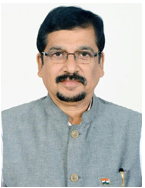 Dr .Prashant Kumar Hota holds M. Phil and MBA as well as a PhD in sustainable development. He is a Scholar of DET, Germany, in Development of Sustainable rural production System and has wide field exposures in India. In his 22 years’ experience of wo rking with NABARD, the Apex Bank of the Country for Agriculture and Rural Development, he contributed to several policy making initiatives of NABARD in the Department of Development Policy, Micro credit and Natural Resource Management, Thailand and Europe. During his present stint in Jindal Steel & Power, JSPL, Odisha and Chhattisgarh Business has been acknowledged by Global Certifying agencies as a sustainable do gooder for the Community for which several national and international awards have been conferred upon JSPL. He is a much-coveted member of the visiting faculty at some of the premier Universities in India in the field of Sustainable development, Agri marketing and Social Work & CSR. Dr. Prashant Hota has authored a Modern Poetry book named as ‘Kaatha’.
Dr .Prashant Kumar Hota holds M. Phil and MBA as well as a PhD in sustainable development. He is a Scholar of DET, Germany, in Development of Sustainable rural production System and has wide field exposures in India. In his 22 years’ experience of wo rking with NABARD, the Apex Bank of the Country for Agriculture and Rural Development, he contributed to several policy making initiatives of NABARD in the Department of Development Policy, Micro credit and Natural Resource Management, Thailand and Europe. During his present stint in Jindal Steel & Power, JSPL, Odisha and Chhattisgarh Business has been acknowledged by Global Certifying agencies as a sustainable do gooder for the Community for which several national and international awards have been conferred upon JSPL. He is a much-coveted member of the visiting faculty at some of the premier Universities in India in the field of Sustainable development, Agri marketing and Social Work & CSR. Dr. Prashant Hota has authored a Modern Poetry book named as ‘Kaatha’.
Mr. Sourav Bhattacharjee, Nutrition Specialist, UNICEF, Odisha
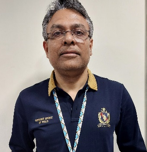 Mr. Sourav has worked as a manager of large-scale community-based programmes for UNICEF, CARE and Government agencies. Recently supported the UNICEF Syria country office for L3 earthquake emergency. Experienced in directing multi-disciplinary teams and achieving outcomes on a scale. He has been involved in multi-sectoral proposal development, influencing policies and budgets, driving implementation and leading assessments and interventions post extreme natural disasters. He has expertise in Maternal & Child Nutrition and dedicated to enhancing child nutrition and survival more than 24 years.He has received Awards/ Fellowship/ Significant Contribution: He has received the prestigious Dr. N. B. Kumta award presented by BPNI Maharashtra during 2014 in recognition of outstanding work in IYCN (Infant and Young Child Nutrition).
Mr. Sourav has worked as a manager of large-scale community-based programmes for UNICEF, CARE and Government agencies. Recently supported the UNICEF Syria country office for L3 earthquake emergency. Experienced in directing multi-disciplinary teams and achieving outcomes on a scale. He has been involved in multi-sectoral proposal development, influencing policies and budgets, driving implementation and leading assessments and interventions post extreme natural disasters. He has expertise in Maternal & Child Nutrition and dedicated to enhancing child nutrition and survival more than 24 years.He has received Awards/ Fellowship/ Significant Contribution: He has received the prestigious Dr. N. B. Kumta award presented by BPNI Maharashtra during 2014 in recognition of outstanding work in IYCN (Infant and Young Child Nutrition).
Dr. Smrutijit Patnaik
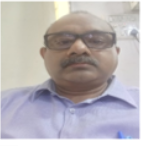 Dr. Smrutijit Patnaik is the Joint Director Family Welfare, Odisha, he has wo rked as Jt. Director, F.W.I/C cum D.D.O, and Nodal Officer, AMLAN programme, he also worked as Nodal Officer, NDD. He is a Master Trainer of AMLAN, IYCF, MAA and Member of OMSA.
Dr. Smrutijit Patnaik is the Joint Director Family Welfare, Odisha, he has wo rked as Jt. Director, F.W.I/C cum D.D.O, and Nodal Officer, AMLAN programme, he also worked as Nodal Officer, NDD. He is a Master Trainer of AMLAN, IYCF, MAA and Member of OMSA.
Dr. J Sreenivasarao, Deputy Director, ICMR -NIN, Hyderabad
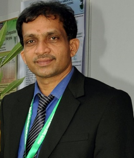
Dr. J Sreenivasarao
Dr Sreenivasa R J is nutrition biochemist and micronutrient research specialist in the Division of Food Composition and Nutrient Analysis, NIN and ICMR. Presently he is holding the position Scientist E/ Deputy Director. He is the recipient of the prestigious young scientist award Sagarmal Goyanka for his best research performance in nutrition (2010). He also received best nutrition researcher award in tribal malnutrition research (2016) from American Society of International Mass Spectroscopy, Chicago, USA. He is closely working with Raj bhavan-TS on malnutritional issues in primitive tribal population. His research interests are, nutrition and food composition analysis with special emphasis on malnutrition problems in tribal population, and biochemistry aspects of communicative processes. He experimented and demonstrated the usefulness of unconventional foods and their uses in terms of nutrition and analysis methods using sensitive approaches. Employing qualitative and qualitative methods for the determination of nutrients with sophisticated techniques includes ICPMS, LCMS, Amino Acid Analyzer, UPLC, Protein Analyzer and many and his research also examined knowledge, perceptions and nutritional aspects affecting food and nutrition and safety at multiple levels. He published numerous research papers in national and international journals, and book chapters and several papers in proceedings of national and international conferences. He is a life member of SBCI, EFI, NSI, IDA, IISc and SAARC foods.
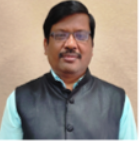 Dr. Amaresh Kumar Nayak, Director, ICAR-NRRI, Cuttack
Dr. Amaresh Kumar Nayak, Director, ICAR-NRRI, Cuttack
Dr. A.K. Nayak the Director, ICAR-National Rice Research Institute, He received Ph.D in Soil Science & Agricultural Chemistry in 1997 from Institute of Agricultural Sciences, BHU. He started his scientific career as a scientist at ICAR-CSSRI RRS, Anand, in the year 1996. Subsequently, he worked as Principal Scientist at ICAR-PDFSR, Modipuram and at ICAR-NRRI, Cuttack as Principal Scientist. During 25 years of his research carrier, he has worked on problem soil management (saline, sodic and iron toxic soil), water quality mapping and modeling, management of poor-quality irrigation water, carbon sequestration and nutrient management in rice-rice and rice-wheat systems. He has been elected as Fellow of National Academy of Sciences, India (FNASI), Fellow of National Academy of Agricultural Sciences (FNAAS), Fellow of Indian Society of Soil Science (FISS), Fellow of Association of Rice Researcher Worker (FARRW). He received many recognition and awards like: Nanaji Deshmukh ICAR Award 2020, SCON & SIT Award 2021, Endeavour Fellowship from Department of Education and Training from Govt of Australia 2018, IPNI-FAI Award 2016, Hari Om Ashram Award 2012 from ICAR, New Delhi, ISSS-Dr. J.S.P. Yadav Memorial Award 2013, Norman E. Borlaug Fellow in the Year 2008.

